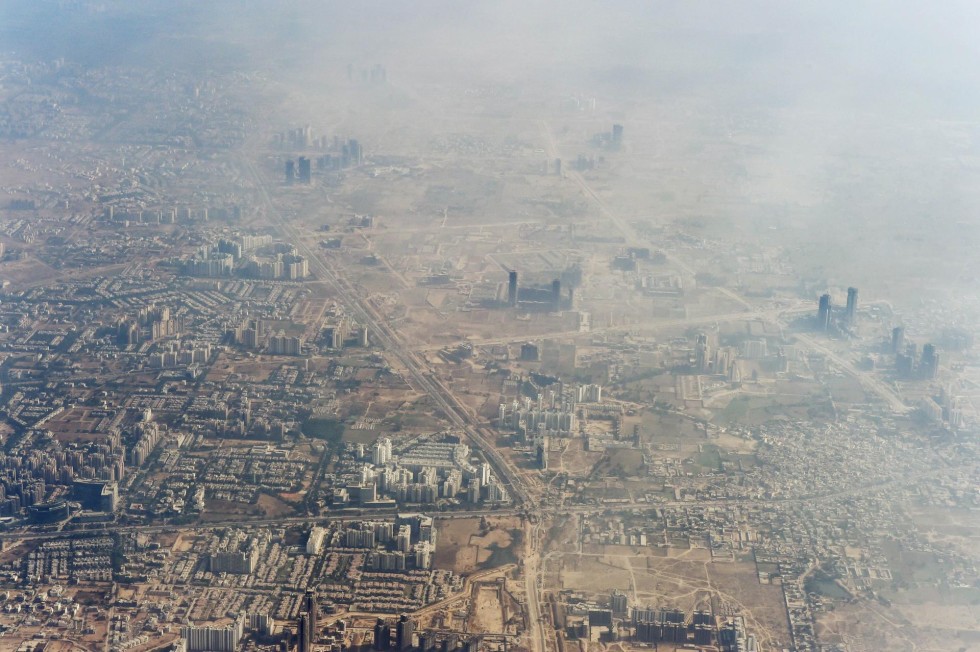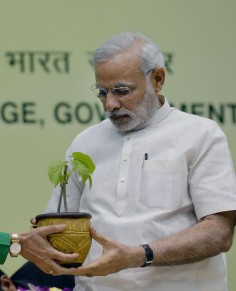- Joined
- Jul 3, 2012
- Messages
- 173
- Points
- 0
India launches air quality index after WHO names Delhi ‘world’s most polluted capital’
New measuring system set up in response to the World Health Organisation nominating New Delhi as the world's most polluted capital
PUBLISHED : Monday, 06 April, 2015, 11:00pm
UPDATED : Monday, 06 April, 2015, 11:03pm
Agencies in New Delhi

Smog envelops New Delhi, which was named last year by the World Health Organisation as the world's most polluted capital city. Photo: AFP
India's government launched a new air quality index yesterday, under intense pressure to act after the World Health Organisation (WHO) declared New Delhi the world's most polluted capital.
Environment Minister Prakash Javadekar said the government would publish air quality data for 10 cities, amid growing public concern over the impact of air pollution on the health of India's 1.2 billion people.
The government's website with the index went live early yesterday but could not be accessed.
"The Air Quality Index may prove to be a major impetus to improving air quality in urban areas, as it will improve public awareness in cities to take steps for air pollution mitigation," Javadekar said as he launched the index at a conference on the environment.
But he gave little indication of what the government would do to improve air quality, except to say it would introduce new rules on disposing of construction waste.
The dust from India's thousands of industrial and construction sites adds to the fumes from millions of vehicles to create the toxic cocktail that urban Indians breathe. At least 3,000 people die prematurely every year in India's capital because of exposure to air pollution, according to a joint study by Boston-based Health Effects Institute and Delhi's Energy Resources Institute.
A WHO study of 1,600 cities released last year showed Delhi had the world's highest annual average concentration of small airborne particles known as PM2.5.
These extremely fine particles of less than 2.5 micrometres in diameter are linked with increased rates of chronic bronchitis, lung cancer and heart disease as they penetrate deep into the lungs and can pass into the bloodstream.
India disputed the WHO's assertion, but has conceded that air pollution in the capital is comparable with that of Beijing.
The government said the new index would initially cover 10 cities - Delhi, Agra, Kanpur, Lucknow, Varanasi, Faridabad, Ahmedabad, Chennai, Bangalore and Hyderabad - each of which would have monitoring stations with Air Quality Index display boards. The aim is to eventually cover 66 cities.

Prime Minister Narendra Modi used yesterday's conference to defend India's record on pollution, saying his country had a strong tradition of protecting the environment.
"We must think of traditional ways to tackle environmental issues," he said.
"There can be green solutions in our age-old traditions," he added, suggesting that Sundays could become "cycle day" on India's traffic-clogged roads.
Modi blamed the changing lifestyles that have come with India's economic development for rising pollution levels and urged Indians to curtail waste and conserve resources even as they become wealthier.
"Until we focus on our lifestyle and get the world to focus on it, we will not succeed despite all other measures being taken," Modi said.
An air quality index compiled by the US embassy in Delhi yesterday registered a PM2.5 reading of 175, which is considered unhealthy.
The reading from the US embassy in Beijing was just 53, which is considered moderate.
Though the government has yet to announce any major moves to tackle air pollution, policymakers have suggested restrictions on private vehicles, higher pollution-related taxes and stricter enforcement of urban planning laws.
Agence France-Presse, Associated Press
